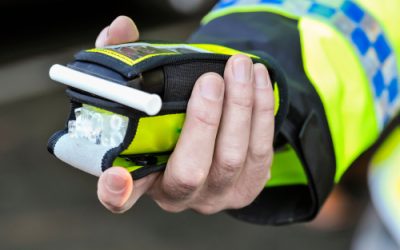
If you have a drunk driving offense on your record and you attempt to enter Canada, Canadian border agents are likely to turn you away. It is possible to enter Canada through its ports of entry even if you have a DUI, but you need to take special legal steps first to make sure you will be admitted.
Unfortunately, Canada’s rules on DUI and the methods to get around them are not well publicized. The result is that countless Californians every year are refused entry at the US/Canada border. You don’t have to be one of them. Our Los Angeles DUI lawyers explain how to legally enter Canada if you have a DUI.
Understanding Canada’s DUI and Border Rules
Canada and the Canadian Consulate treat DUI and all alcohol violations, including wet reckless convictions, very seriously. Canadians with a DUI in their criminal history are welcome to enter the United States, but the reverse is not true.
Here are the basics of Canada’s DUI border rules:
- You may be turned away by any border officer at any entry point
- It does not matter if you’re driving or not. Even if you are in the passenger seat or are arriving without a car — such as in a bus, airplane, or ferry — you can still be refused entry
- Canadian Border Patrol technically has the power to make an exception, but they rarely do
- The rule applies equally to all DUI charges, including misdemeanors and felonies
- The passage of time does not matter — any DUI may invalidate your right to enter Canada
How Will the Border Officer Know?
We’ve all heard stories of people who had a DUI on their record and “got through anyway.” It’s possible — officers make mistakes from time to time. However, Canadian border crossings are high-tech operations.
Canada Border Services Agency enacts Canadian immigration law by checking ID for every individual entering their country. As a matter of policy, they run your criminal history on their computer before letting you enter. This only takes seconds, and anything that would show up to US law enforcement will show up for them, too. This includes DUI’s that are so old your insurance company would not see them.
Because of this, it is important not to lie or attempt to deceive them in any way. This includes:
- Directly lying about your DUI: A Canadian immigration officer will see it anyway, and they have the power to issue a short-term, long-term or lifelong ban on entering Canada.
- Asking your friends to lie: Everyone with you may receive a waiver of inadmissibility if the border officer believes they knew about your DUI and tried to cover it up.
- Trying multiple border crossings: Every attempted crossing is put in the computer right away. The border officer at the second crossing will see your attempt from 30 minutes ago at the first crossing and will immediately become suspicious.
Ways to Go to Canada Legally With a DUI
There are several ways to enter Canada legally if you have a DUI on your record. They all require filing legal paperwork. The best way to pursue any of them is to have a California DUI lawyer help you. It’s important to file everything correctly so that you don’t risk making a mistake that could jeopardize the process and delay you from getting permission to enter Canada.
The three methods are:
Expunging Your DUI in the United States
If your DUI is expunged from your criminal record, it means that Canadian border officials cannot see it and/or may not hold it against you. Expunging a crime means having it hidden from public view because you have completed your sentence and put it behind you. It can still be seen by courts and in some other types of background checks.
Expunging has the advantage of being a process handled entirely in the US. It offers a permanent solution to the problems presented by your criminal history — in the United States, at least. Unfortunately, expungements are not always recognized by Canadian law.
You should first talk to a Canadian visa office about your specific DUI history and whether an expunction will count as a record suspension and allow you to enter the country. Your California DUI lawyer can help you.
Pursuing Criminal Rehabilitation in the United States
Rehabilitation is a Canadian process whereby you demonstrate your good faith commitment to being a law-abiding driver. It has the advantage of being 100% effective if issued, but you must meet certain criteria.
There are forms of rehabilitation that require either a 5-year period since your DUI sentence was completed or a 10-year period. Conditions apply to each. Your DUI lawyer can help you choose the right one and file the correct paperwork.
Applying for a Temporary Resident Permit With a Canadian Immigration Lawyer
If you apply for a temporary resident permit, you may be able to get permission to enter Canada even if it’s been less than five years since your DUI. However, you must have a specific purpose for entering Canada and a specific timeframe. For example, if you need to come to Canada for 30 days as part of a job, you may have a basis for a temporary resident permit.
Filing a TRP application offers you a short-term solution to a long-term problem. You can ask your DUI lawyer how to file for a permit while simultaneously exploring alternative solutions to your immigration challenges.
When Can You Face DUI Charges in the United States?
You may face DUI charges in the United States if you’re caught behind the wheel of a car with a blood alcohol content (BAC) that exceeds 0.08 percent. You may also face DUI charges if officers confirm you were under the influence of legal or illegal drugs while driving.
DUI convictions can see you face jail time on top of significant fines that may compromise your financial stability. Moreover, unchallenged DUI charges make your entry to Canada illegal under criminal inadmissibility.
It does not matter if a period of time has passed between your conviction and your plans to travel northward. Canadian immigration authorities have the right to turn you away if they believe you present an active threat to other people on their roadways.
How Can You Challenge DUI Charges in the United States?
You can challenge a DUI charge in the United States by asserting:
- Police officers stopped you without good reason
- Officers’ field test equipment inaccurately assessed your well-being
- Officers exhibited bias while arresting you
- Officers did not read you your rights at the time of your arrest
Concrete defenses can help you minimize your jail time or any fines you might face as a result of unreasonable charges. You can discuss which defenses might best suit your defense when you meet with an attorney after your arrest. We can recommend criminal rehabilitation programs that may additionally help you reduce the consequences you face for your alleged misconduct.
When Should You Contact a Los Angeles DUI Lawyer?
It’s in your best interest to contact a Los Angeles DUI lawyer long before you make plans to travel to Canada. If you can work with an attorney in the days immediately following your arrest, our team can fight to keep a DUI charge off of your criminal record. A sound defense may subsequently let you enter Canada without any fuss at a later date.
Should the state convict you of a DUI, don’t panic. You can still work with a DUI lawyer to challenge the charge. You may alternatively explore means through which you can see a fulfilled charge cleared from your record, like expungement. You may also pursue criminal rehabilitation, if applicable.
Your first case consultation with an experienced DUI lawyer comes free of charge. Contact our team to learn more about how we can protect your future.
Our Los Angeles DUI Lawyers Can Help You Work With Canadian Immigration Authorities
Our team understands that criminal inadmissibility can leave you and your loved ones frustrated, particularly when it catches you by surprise. If you want to avoid a conflict with Canada’s immigration officers, consider fighting back against wrongful DUI charges upon or after your arrest.
You don’t have to go into that fight alone. Our team can connect you with a local Los Angeles DUI lawyer who can help you expunge a DUI charge. We can also break down Canadian border law and can help you get the permission you need to cross over. Contact us and get your free consultation today.






